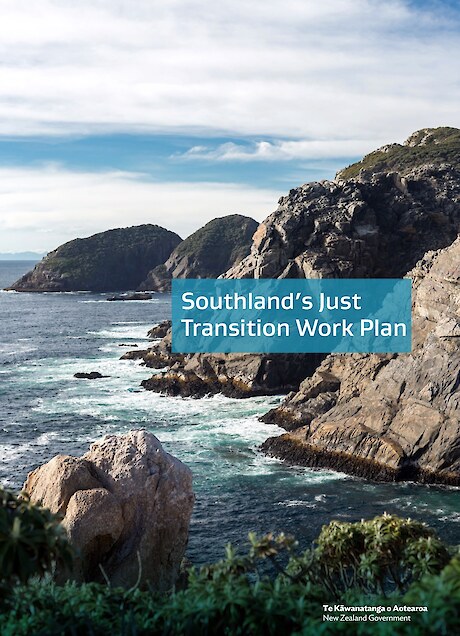Southland Reimagining its Economic Future
Southland is traveling in a new direction following today’s release of the region’s Just Transition Work Plan (PDF, 2.42 MB), sign-posting the region’s economic path beyond the closure of the New Zealand Aluminium Smelter (NZAS). 
The Work Plan is the first milestone in the Government’s commitment to support a just transition for Southland. The region faces significant job losses and flow-on impacts on local businesses as a result of the planned closure of NZAS in 2024. The goal is to build the region’s economic, environmental and social resilience, securing its future prosperity.
Southland just transition Enduring Oversight Group co-chairs, Aimee Kaio and Neil McAra said the release represents nearly a year of work between Southland iwi, regional leaders and central government, with a strong focus on managing the impacts of the planned closure.
This plan is the first steps toward building a new future for our region. We’ve identified the direction of travel. The next stage is to work together to deliver the jobs and opportunities to make this plan a reality.”
“With the support of Government, our community came together to understand the current and real challenges and advantages of our region. Like all regions there are many opportunities, we need to be strategic and open to the long term sustainable possibilities. Just transitions is a vehicle to ensure everyone in Murihiku/Southland comes with us on the journey.” Said Aimee Kaio.
The plan aims to enable Southland to create a future that has diversity and depth in existing industries and is primed to capitalise on new industries.
Neil McAra, said “Southland as long been a province which just gets on and does it. While there are many opportunities within Southland, the need to have a more robust and diverse economy has never been more important. With the support of government through just transitions we are developing plans for the future. It’s vital all Southlanders work together to ensure success.”
The work plan is broken into seven work streams which each have local leads assigned:
- Clean energy – Murihiku Regeneration
- Land use – Thriving Southland
- Aquaculture – Southland Aquaculture Working Group
- Business transitions – Southland Chamber of Commerce
- Worker transitions – Murihiku Regeneration
- Long-term planning – Great South
- Community capability building – Invercargill City Council.
The work plan is very clear that under each of the work streams more work must be done to develop the detail on how to deliver, what is needed to make it happen, and when it is likely.
The Enduring Oversight Group will receive feedback on each of the work streams in August. The group will work with central government to develop the next stage of the plan to support the region to deliver on agreed actions prior to NZAS’ announced closure date.
What is a just transition?
In general terms, a just transition is a strategy to help a region lead its own planning and ensure the impacts and opportunities arising from the transition are evenly distributed. A just transition process recognises there are many communities and perspectives in a region. There are also lots of different views on what a “successful” transition looks like. Working in partnership with key pou (or groups) can balance the ambitions of diverse parties, including those who may not always be included in regional planning.
The just transition partnership in Southland includes:
- Iwi
- Local government
- Education providers
- Business representatives
- Workers (represented by unions)
- Community organisations
- Central government
- The primary sector.
Posted: 2 February 2022
